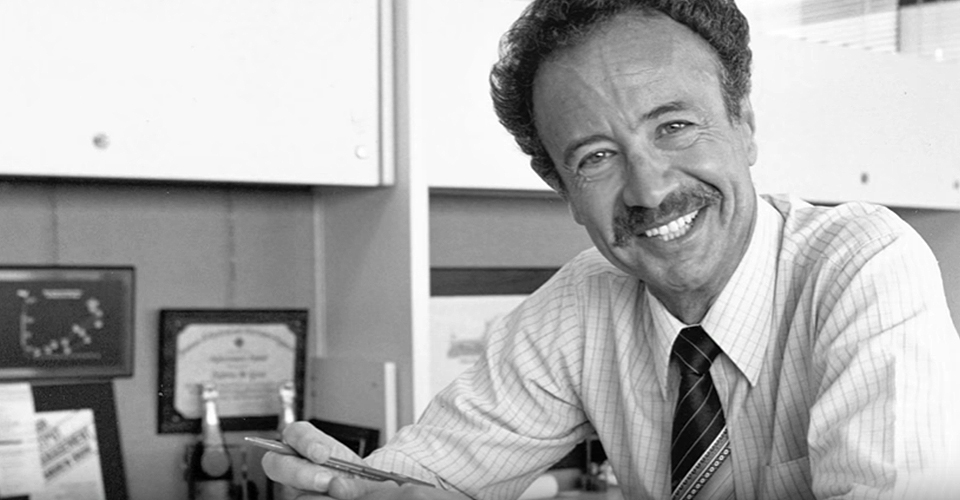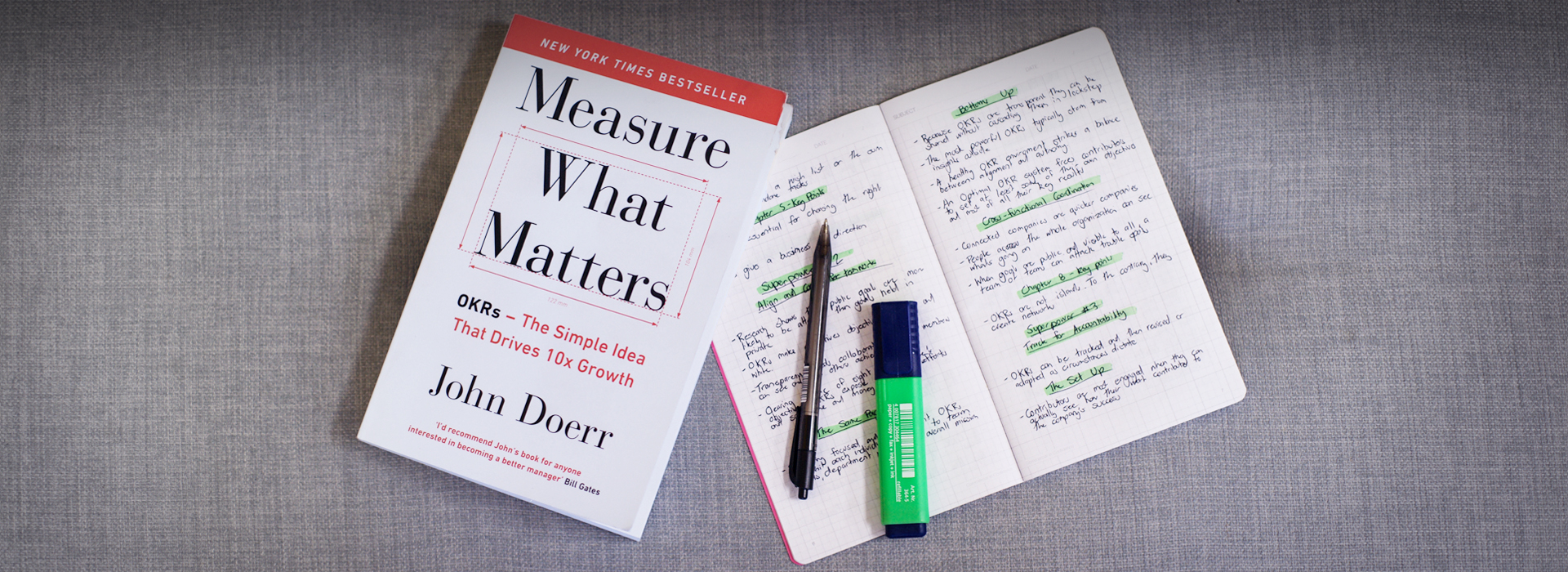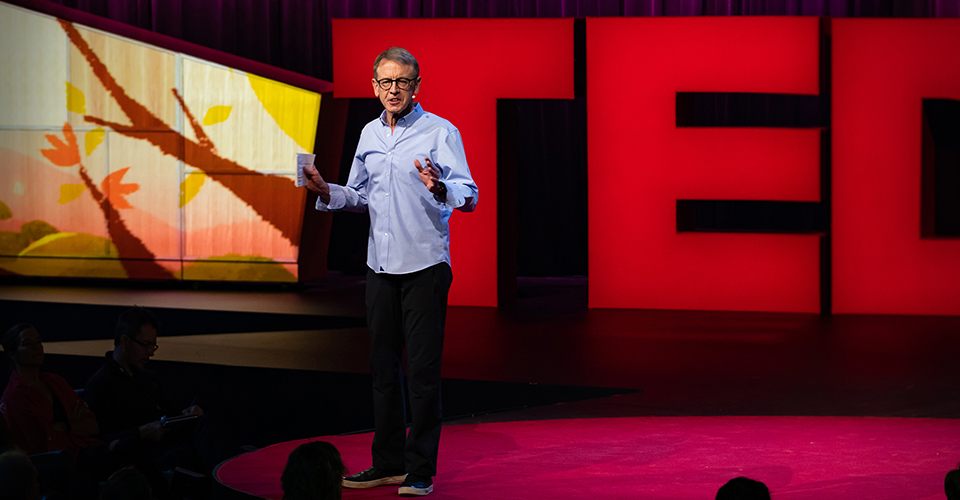Book club: Measure What Matters
We do a lot of research and reading on a daily basis, but that doesn’t stop us from sinking our teeth into books that inspire us as a company. Clearly, we are bookworms! We love to share our learnings within the team and with our followers.
This is why we initiated Book Club, to give the team something to read (or listen to) collectively, and to educate and expand our thinking on topics relevant to our work.
The first book up is “Measure What Matters” by John Doerr.
Reason for reading
Having a strategy and an actual executable plan is worth its weight in gold. We are all too familiar with the run of the mill standard; “company missions and visions”. However, the execution of this ambition is what seems to be the real challenge. Creating strong objectives and tasks attached to those objectives can be overwhelming and fuzzy, especially when not measured or measurable.
This is where “Measures What Matters” comes in. It is a handbook for setting and achieving audacious goals. The book describes its approach OKRs (Objective, Key Results) and backs it up with some real-world examples and stories from some of the biggest companies around the world, such as Google and Intel.
The OKR method has gained a lot of traction around the world and has also found its way to New Zealand. Our local favourite Ubco has successfully implemented the technique across their national and international team.
“Ideas are easy –
Execution is everything”
– John Doerr
We, here at Locus, love a pragmatic approach that focuses on speed and simply getting the job done, and done well. So we decided to give “Measures What Matters” a good read and, off the back of it, implement and test it for ourselves. 😉
History
The writer, John Doer, first encountered the methodology at Intel, where he was an employee, back in the 70s. ‘Intel’s co-founder and CEO at the time, Andy Grove, developed* and used a model, called OKRs, that transformed the company into the microprocessor company giant, which it is today.
The OKR model gave the leadership team a tool to develop and communicate a strategy in which everyone is pointing in the same direction. Not only did it provide strategic alignment, but it also ensured the work with the biggest business impact was prioritised, and ultimately led to higher engagement among Intel employees. John learned from the master, Andy, himself and has been an advocate for this method well beyond his time at Intel.
When John became one of Googles advisors back in 1999**, he made sure they got to know about OKRs too. The founders, Larry Page and Sergey Brin, implemented OKR at Google, which is still in use to the day – both professionally as well as personally.
*Andy Grove modelled his theory on Peter ‘Drucker’s MBO “Management by Objectives” approach. With the critical difference of tying in objectives with “key results”, making them quarterly, not annual, and not tied in with compensation (remuneration).
**John joined Kleiner Perkins Caufield & Byers, one of the first major investors in Google.

Andy Grove back in the day at Intel.
What is the book about? OKRs in a nutshell
Let’s start with some definitions – straight from the book’s website https://www.whatmatters.com/
The definition of “OKRs” is “Objectives and Key Results.” It is a collaborative goal-setting tool used by teams and individuals to reach for their most ambitious goals with measurable results. OKRs are how you track progress.
It is designed to be a simple, fast-paced process that engages all team member’s perspective and creativity. As the acronym suggests, it roughly works on 2 levels: setting Objectives and setting Key Results.
- The Objectives provides the direction: What do I want to achieve? Objectives are significant, concrete, action-oriented, and (ideally) inspirational.
- The Key Results are the path and its milestones along the way. They benchmark and monitor how we get to the objective. Good Key Results are specific, time-bound, aggressive yet realistic, and describe outcomes – not activities. Most importantly, they are measurable and verifiable – you either did or did not meet the Key Result.
Objectives are set for a more extended period, generally a year. The attached Key Results are set on a higher rotation; usually, a quarter, to ensure speed and results.
It is therefore advisable not to have too many Key Results (about 3 KRs per objective) otherwise the work cannot be managed correctly. However, this does not mean to make it easy to achieve. Setting your goals high and challenging will lead to best learnings and results. Even failed goals result in substantial advancements.
Why does it matter (to us)? Why implement?
Going through the process of defining your objectives and attaching measurable key results is enlightening in itself. It creates buy-in from the entire team and helps prioritise the things that will matter most. Having a measurable plan per quarter, against each of the objectives, makes it less overwhelming and more exciting. Finally, a method that drives change and actual execution.
It is :
- Fast – the quarterly approach with a maximum amount of Key Results creates a system that has a chance of executing.
- Simple – the system that forces you to keep it simple, but not without ambition.
- Inclusive/transparent – The process is inclusive and creates buy-in across your team
- Creates ownership – Every team and team member champions their own slice within the OKRs and tasks attached. Everyone works together to ensure the company is on track.
- Not fixed – OKRs are not set in stone and can evolve as the year goes by.
- Ambitious – set your goals just beyond the threshold of what seems possible, it will bring out the best in people. It is essential to have an environment that accepts “failure” as these potential failures will always bring insights and knowledge with them.
- Not about bonuses – OKR is a management tool, not an employee evaluation tool, so no need to worry that your salary or bonus is at stake here.
After reading, learning, and understanding OKRs we have started to form our own Locus Research company OKRs. We are already experiencing the positive impact and believe it is a powerful tool for helping achieve any business or personal goals.
Want to learn more?
Here are some resources worth checking out:
Or buy the book:
What is our next book?
Sprint: How to Solve Big Problems and Test New Ideas in Just Five Days
On the surface, an excellent continuation of the above – looking more in-depth into execution and focusing efforts. We look forward to reporting back on what we learn.
Want to read more on creativity, design, product development and innovation? Go to our Six Lenses Blog.



Comments